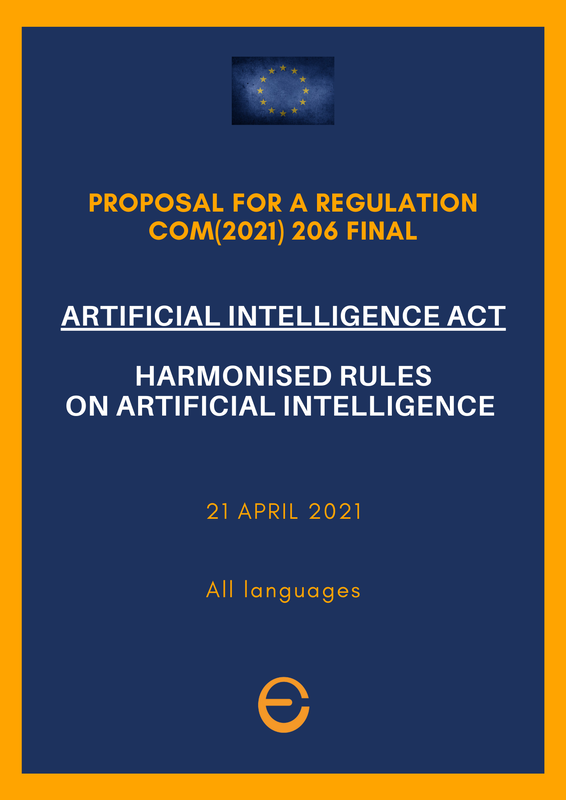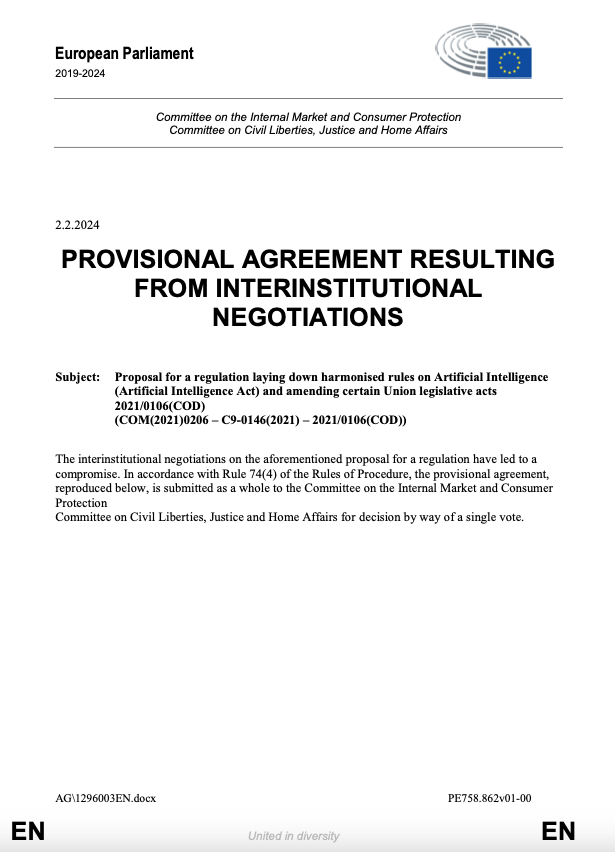|
Brussels, |
|
THE NEW FRONTIERS
EU Artificial intelligence Act
|
On 21 April 2021, the European Commission released a Proposal for a Regulation Laying down harmonized rules on Artificial Intelligence (Artificial Intelligence Act) and amending certain Union legislative Acts. In November 2023, EU Council and European Parliament agreed on a compromise text. On 13 March 2024, the European Parliament voted on the compromise text.
The proposed regulation aims to establish a comprehensive framework for the development and deployment of artificial intelligence (AI) within EU. It addresses various aspects of AI, including ethical considerations, transparency, accountability, and legal implications. The regulation recognizes the potential benefits of AI while acknowledging the need to ensure its safe and responsible use. It introduces requirements for high-risk AI systems, defined as systems that pose significant risks to health, safety, or fundamental rights. These requirements include mandatory conformity assessments, data and record-keeping obligations, and the appointment of a responsible person within the organization. The proposed regulation also emphasizes the importance of human oversight and the need for clear and understandable information for users. |
Additionally, the document discusses the establishment of a European Artificial Intelligence Board and a European Artificial Intelligence Committee to facilitate cooperation and coordination among member states. It highlights the role of national competent authorities in enforcing the regulation and imposing sanctions for non-compliance.
The proposed regulation aims to strike a balance between promoting innovation and protecting individuals' rights and safety. It acknowledges the importance of fostering a trustworthy and human-centric approach to AI. The document also emphasizes the need for international cooperation and harmonization of AI regulations to ensure a global ethical and legal framework for AI development.
The proposed EU Regulation seeks to address the challenges and risks associated with AI while harnessing its potential for societal and economic benefits. It sets out a comprehensive framework to govern the development, deployment, and use of AI systems within the EU, with a particular focus on high-risk applications.
eEuropa Blog - Read our articles
The proposed regulation aims to strike a balance between promoting innovation and protecting individuals' rights and safety. It acknowledges the importance of fostering a trustworthy and human-centric approach to AI. The document also emphasizes the need for international cooperation and harmonization of AI regulations to ensure a global ethical and legal framework for AI development.
The proposed EU Regulation seeks to address the challenges and risks associated with AI while harnessing its potential for societal and economic benefits. It sets out a comprehensive framework to govern the development, deployment, and use of AI systems within the EU, with a particular focus on high-risk applications.
eEuropa Blog - Read our articles



